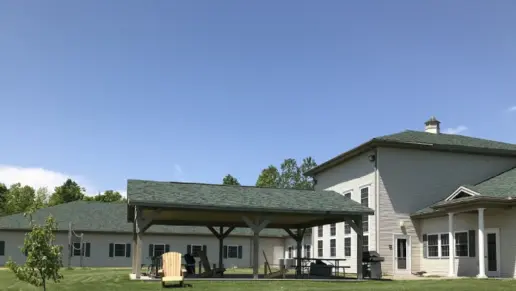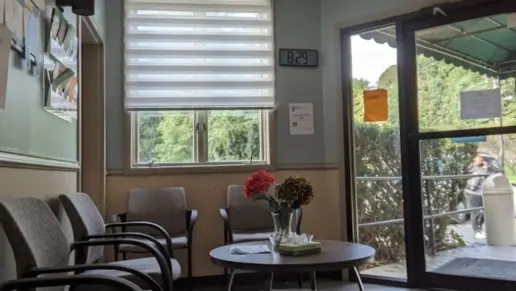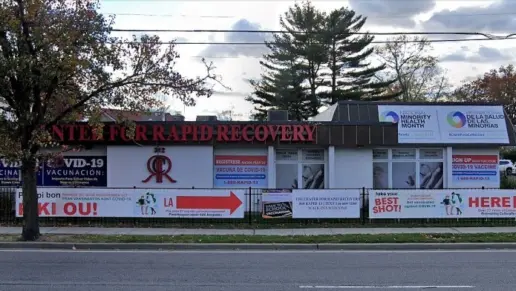About Saint Josephs Addiction Treatment
St Joseph’s provides a full continuum of care for patients struggling with substance use disorder. Their inpatient residential clinic is located in Saranac Lake, New York. This 67-bed facility offers safe, conducive and supportive environments where men and women with severe addiction can get the help they deserve. They also handle addiction with co-occurring conditions such as depression and anxiety.
This facility is one of the few residential programs in New York State that provide up to 90 days of treatment stay. They provide quality and personalized care tailored to the client’s unique needs.
They’re OASAS licensed and CARF accredited. This is a positive validation of the quality and standard of care they provide. Thanks mainly to their dedicated team of professionals. This care team includes licensed counselors, psychiatrists and therapists among others.
These experts deliver comprehensive inpatient care leveraging proven therapeutic practices that are trauma-focused. This means they take consideration of and are sensitive to your past trauma. You may receive medication-assisted treatment with 24/7 medical care, support and supervision. It all depends on your unique condition.
Medication-assisted treatment combines FDA-approved medicine with counseling and therapeutic support. This approaches is popular in treating opioid dependence. The reason is that it addresses both the physical and psychological aspects of addiction.
Medications like methadone and buprenorphine are typically used to minimize withdrawal symptoms and curb cravings. At the same time the client participate in counseling to uncover the root causes of their addiction and build robust coping mechanisms that foster lasting recovery.
Another cool thing about this facility is that they helps you explore spirituality as one of the core aspects of recovery. This is in addition to both proven therapeutic practices and wellness activities like behavioral therapy, yoga, meditation, and outdoor adventures. They also offer specialty groups such as anger management, GED classes and women-specific programs and lectures. Aftercare services may involve connections to community resources, support groups, self-help meetings and ongoing support.
Rehab Score
Other Forms of Payment
Medicaid is a state based program that helps lower-income individuals and families pay for healthcare. Medicaid covers addiction treatment so those enrolled can use their coverage to pay for rehab. When a program accepts Medicaid the client often pays very little or nothing out of their own pocket.
Private insurance refers to any kind of healthcare coverage that isn't from the state or federal government. This includes individual and family plans offered by an employer or purchased from the Insurance Marketplace. Every plan will have different requirements and out of pocket costs so be sure to get the full details before you start treatment.
Self-pay involves paying for treatment out of your own pocket. You can use savings or credit, get a personal loan, or receive help from family and friends to fund your treatment. If you don't have insurance or your insurance plan doesn't cover a specific program, self-pay can help ensure you still get the care you need.
Financial aid can take many forms. Centers may have grants or scholarships available to clients who meet eligibility requirements. Programs that receive SAMHSA grants may have financial aid available for those who need treatment as well. Grants and scholarships can help you pai for treatment without having to repay.
Addiction Treatments
Levels of Care
Treatments
The goal of treatment for alcoholism is abstinence. Those with poor social support, poor motivation, or psychiatric disorders tend to relapse within a few years of treatment. For these people, success is measured by longer periods of abstinence, reduced use of alcohol, better health, and improved social functioning. Recovery and Maintenance are usually based on 12 step programs and AA meetings.
When you choose drug rehab in New York, you'll participate in a variety of treatments that are designed to help you live a drug-free lifestyle. Common methods of treatment include group, individual, and family counseling, medication management, nutrition, exercise, and management of co-occurring mental health disorders.
Opioid rehabs specialize in supporting those recovering from opioid addiction. They treat those suffering from addiction to illegal opioids like heroin, as well as prescription drugs like oxycodone. These centers typically combine both physical as well as mental and emotional support to help stop addiction. Physical support often includes medical detox and subsequent medical support (including medication), and mental support includes in-depth therapy to address the underlying causes of addiction.
Substance rehabs focus on helping individuals recover from substance abuse, including alcohol and drug addiction (both illegal and prescription drugs). They often include the opportunity to engage in both individual as well as group therapy.
Programs


Clinical Services
Cognitive Behavioral Therapy (CBT) is a therapy modality that focuses on the relationship between one's thoughts, feelings, and behaviors. It is used to establish and allow for healthy responses to thoughts and feelings (instead of unhealthy responses, like using drugs or alcohol). CBT has been proven effective for recovering addicts of all kinds, and is used to strengthen a patient's own self-awareness and ability to self-regulate. CBT allows individuals to monitor their own emotional state, become more adept at communicating with others, and manage stress without needing to engage in substance abuse.
Saint Josephs Addiction Treatment - River Road offers family support sessions. The also have a residential program available for family members of individuals suffering alcohol and/or substance addiction. Upon admission to Saint Josephs Addiction Treatment - River Road’s, residents meet with family counselors to sign releases for those loved ones they wish to invite to participate in family session. Counselors guide residents towards identifying loved ones who have been most impacted by their disease, who have enabled them, and who they wish to continue relationships with after treatment. Ultimately, the invitation to participate in family session is at the discretion of each resident. Only those persons contacted by the family department may attend family session. Participants include, but are not limited to: parents, children (ages 13 and older), spouses, significant others, friends, sponsors, and other relatives.
Group therapy is any therapeutic work that happens in a group (not one-on-one). There are a number of different group therapy modalities, including support groups, experiential therapy, psycho-education, and more. Group therapy involves treatment as well as processing interaction between group members.
In individual therapy, a patient meets one-on-one with a trained psychologist or counselor. Therapy is a pivotal part of effective substance abuse treatment, as it often covers root causes of addiction, including challenges faced by the patient in their social, family, and work/school life.
Accreditations

The Commission on Accreditation of Rehabilitation Facilities (CARF) is a non-profit organization that specifically accredits rehab organizations. Founded in 1966, CARF's, mission is to help service providers like rehab facilities maintain high standards of care.
CARF Accreditation: Yes
Contact Information
159 Glenwood Drive
Saranac Lake, NY 12983


